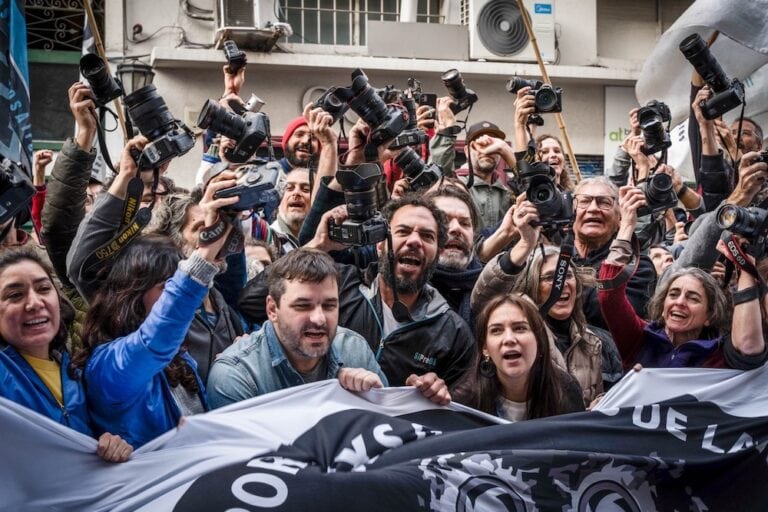(PERIODISTAS/IFEX) – On 20 March 2003, the Supreme Court called for the reopening of a defamation suit launched in 1991 by former president Carlos Menem against former member of parliament and film critic Fernando “Pino” Solanas and “Noticias” magazine. In a 13 March 1991 interview with “Noticias”, Solanas accused the Menem government of being “corrupt, […]
(PERIODISTAS/IFEX) – On 20 March 2003, the Supreme Court called for the reopening of a defamation suit launched in 1991 by former president Carlos Menem against former member of parliament and film critic Fernando “Pino” Solanas and “Noticias” magazine. In a 13 March 1991 interview with “Noticias”, Solanas accused the Menem government of being “corrupt, swindlers, and traitors.”
Following a number of delays in the proceedings, both the first instance court and the Federal Criminal and Correctional Appeals Court decided that the case had passed the statutory limitation period of two years. This legal principle is aimed at ensuring that the accused is brought before a court “within a reasonable time” and is not forced to face a complaint for an indefinite time period. The limitation period can be overridden in certain circumstances when this is deemed important to the debate on the case. PERIODISTAS recalls that Solanas, who was a member of parliament when the case was brought before the courts, voluntarily renounced any immunity granted to him because of his position in order to allow the case to proceed and remove any restrictions on the evidence presented.
Nevertheless, in a majority vote the Supreme Court decided that Menem’s lawyers had acted with the understanding that there was no limitation period and that the defence had been responsible for the delays. The judges felt that the former president’s complaint had sufficient merit to warrant suspending the limitation period and ordered that the case be brought before the first instance court.
Supreme Court Judge Enrique Petracchi voted against what he felt was an “erroneous” decision on a procedural matter that did not fall under the Supreme Court’s jurisdiction. Petracchi concluded that “there is no legal justification for bringing the defendant before the court more than 10 years after the incident occurred when the limitation period was two years.”
PERIODISTAS recalled that “the Inter-American Commission on Human Rights has questioned legal practices such as the one that resulted in the reopening of the case. The accused has the right to be brought before the court and have the charges against [him] determined within a reasonable time, the Commission has said. Both the Inter-American Court of Human Rights, in the Suárez Rosero case, and the European Court of Human Rights, in the Capuano case, have expressed similar sentiments.”
PERIODISTAS condemned the Supreme Court’s verdict as a threat to freedom of expression and announced its intent to support Solanas once the case is before the courts.
Recommended Action
Send appeals to Judge Norberto Oyarbide:
– condemning the decision to reopen the case against Solanas after more than 10 years since the complaint against him was filed
– stating that such legal practices are an attack on freedom of expression according to international human rights organisations
Appeals To
Dr. Norberto Oyarbide
Fifth Federal Criminal and Correctional Court
Tel/Fax: +54 11 4811 4114
Please copy appeals to the source if possible.


